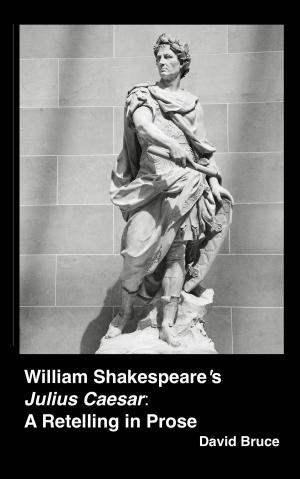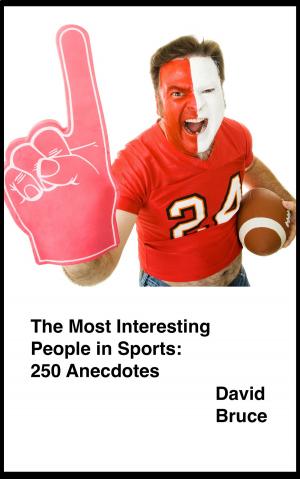| Author: | David Bruce | ISBN: | 9781466017542 |
| Publisher: | David Bruce | Publication: | November 16, 2011 |
| Imprint: | Smashwords Edition | Language: | English |
| Author: | David Bruce |
| ISBN: | 9781466017542 |
| Publisher: | David Bruce |
| Publication: | November 16, 2011 |
| Imprint: | Smashwords Edition |
| Language: | English |
Some sample anecdotes: 1) Fan fiction—fiction written by fans using the characters they are fans of—has been around for longer than you may think. When Ray Bradbury was 12 years old in the early 1930s, he was a big fan of Edgar Rice Burroughs, author of books starring such characters as Tarzan of the Apes and John Carter of Mars. Mr. Burroughs sometimes ended a book with a cliffhanger, so the reader would have to buy the next book in the series to find out what had happened. After young Ray had finished a John Carter of Mars novel, he didn’t have enough money to buy the sequel, so he wrote his own sequel. Was it published? Mr. Bradbury says, “I was twelve! It was terrible! I threw it away!” 2) Chris Crutcher used profanity while he was growing up in Idaho, and profanity peppers some of his books for teenagers, such as ‘Stotan!’ When his first book, ‘Running Loose,’ was still in the editing stage, his agent suggested that a certain two-word phrase that was used frequently in the book might negatively affect sales, considering the audience for which the book was written. Mr. Crutcher agreed to remove the two-word phrase, and he jokes that by deleting the two-word phrase he turned a 300-page novel into a 200-page novel. During the time he spent editing the book, someone asked his mother where he was. She replied that she had not seen him for two weeks because he was busy “unf**king” his book. 3) Theodor Geisel, who is better known as Dr. Seuss, disliked some forms of advertising. He was once offered a large amount of money to allow one of his rhymes to be used in a television commercial. When he turned the money down, he was offered an even larger amount of money, and his agent, Herbert Cheyette, told him, “If you accept this deal, you will go down into ‘The Guinness Book of Record’s as the writer who was paid the most money per word.” Mr. Geisel replied, “I’d rather go into ‘The Guinness Book of Records’ as the writer who refused to be paid the most money per word.”
Some sample anecdotes: 1) Fan fiction—fiction written by fans using the characters they are fans of—has been around for longer than you may think. When Ray Bradbury was 12 years old in the early 1930s, he was a big fan of Edgar Rice Burroughs, author of books starring such characters as Tarzan of the Apes and John Carter of Mars. Mr. Burroughs sometimes ended a book with a cliffhanger, so the reader would have to buy the next book in the series to find out what had happened. After young Ray had finished a John Carter of Mars novel, he didn’t have enough money to buy the sequel, so he wrote his own sequel. Was it published? Mr. Bradbury says, “I was twelve! It was terrible! I threw it away!” 2) Chris Crutcher used profanity while he was growing up in Idaho, and profanity peppers some of his books for teenagers, such as ‘Stotan!’ When his first book, ‘Running Loose,’ was still in the editing stage, his agent suggested that a certain two-word phrase that was used frequently in the book might negatively affect sales, considering the audience for which the book was written. Mr. Crutcher agreed to remove the two-word phrase, and he jokes that by deleting the two-word phrase he turned a 300-page novel into a 200-page novel. During the time he spent editing the book, someone asked his mother where he was. She replied that she had not seen him for two weeks because he was busy “unf**king” his book. 3) Theodor Geisel, who is better known as Dr. Seuss, disliked some forms of advertising. He was once offered a large amount of money to allow one of his rhymes to be used in a television commercial. When he turned the money down, he was offered an even larger amount of money, and his agent, Herbert Cheyette, told him, “If you accept this deal, you will go down into ‘The Guinness Book of Record’s as the writer who was paid the most money per word.” Mr. Geisel replied, “I’d rather go into ‘The Guinness Book of Records’ as the writer who refused to be paid the most money per word.”















